From cigarettes to the cloud: How tech took over F1
The smoke of Marlboro and Camel has cleared for the likes of HPE, NetApp, Darktrace and many more

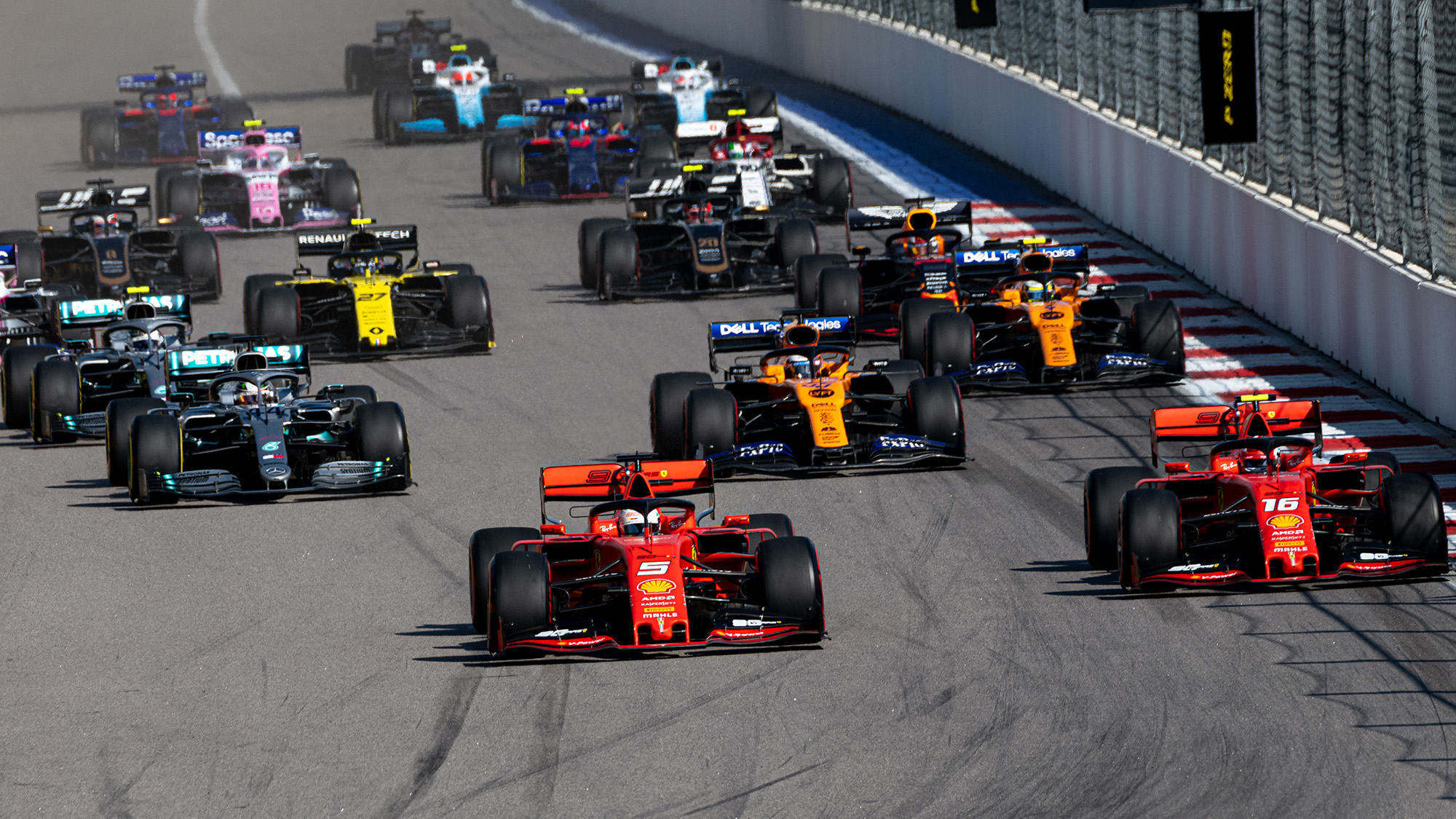
Sign up today and you will receive a free copy of our Future Focus 2025 report - the leading guidance on AI, cybersecurity and other IT challenges as per 700+ senior executives
You are now subscribed
Your newsletter sign-up was successful
In the 80s and 90s, tobacco sponsorships were as synonymous with Formula 1 as Fleetwood Mac’s ‘The Chain’ – and, it’s a testament to the power of advertising that many of the sports most famous cars and drivers can still conjure the memory of a certain brand of cigarette.
The Williams Renault driven by Damon Hill in 1996 won the Championship, and a mental image of the winning car will show a giant ‘Rothman’s’ logo. Four years earlier, Nigel Mansell did the same but his Williams car is as famous for its great big yellow advert for ‘Camel’.
In 2006, when motorsport’s governing body, the Fédération Internationale de l'Automobile (FIA), brought in a sport-wide ban on tobacco advertising, nine of the ten Formula 1 (F1) teams had some form of cigarette logo on their cars. However, over the last 15-years, this advertising space has been largely taken over by technology firms.
For the 2021 season, there are logos for at least two technology companies on each car; Oracle is the proud sponsor of the RedBull team, the UK’s Darktrace has a prominent spot on the McLaren’s spoiler, Kaspersky is right at the front of the Ferrari and chipmaker AMD can be seen on closeups of Lewis Hamilton in the Mercedes.
NetApp has also partnered with the UK’s Aston Martin team, which is back in F1 after an almost 60-year absence. The firm is providing cloud services to help collect, store and process data from the car, but it’s also a chance to promote NetApp in Britain. The company’s UK director, Chris Greenwood, tells IT Pro that the deal was a great opportunity for the firm to be linked with a British company, pointing out that the NetApp logo appears next to a Union Jack at the front of the car. A space that would not so long ago have been dominated by tobacco brands.
Up in smoke
The influence of tobacco in Formula 1 can be traced back to 1974 with Marlboro’s first partnership with McLaren. The famous brand of cigarette, which is owned by Philip Morris International, is perhaps more well known for its lucrative collaboration with Ferrari, which has arguably produced the sport’s most iconic cars. However, the tobacco industry as a whole was heavily invested in F1 from the mid-80s and lingered well beyond the millennium. But its involvement in sport, in general, goes back hundreds of years, according to sports advertising expert Tim Crow.
“When sport got organised and got big back in the 20s and 30s of the 20th century, you'll find a lot of tobacco advertising and sponsorship happening then,” Crow points out. “But obviously TV cameras moved in in the 50s and 60s, and at the same time, the legislators were starting to outlaw cigarette advertising on television. So they needed to find another way to do advertising and get onto TV and sport represented a very good way.
Sign up today and you will receive a free copy of our Future Focus 2025 report - the leading guidance on AI, cybersecurity and other IT challenges as per 700+ senior executives
“Professional sport was still growing, still learning the ropes. And big tobacco came along and offered big checks, and sport took them. So it was that combination of sport getting big and getting the TV cameras in, and tobacco companies having to find a new way of getting onto TV without being able to use TV advertising.”
In the case of Formula 1, cigarette branding almost covered every available space, from cars to drivers’ suits to massive billboards above the race tracks. Its impact was so great that it was still being felt decades later with the 2013 movie Rush, which tells the story of James Hunt’s rivalry with Niki Lauda. Hunt’s 1976 McLaren carries the Marlboro logo and its repeated use in the film forced the British Board of Film Classification to rate it ‘12A’.
Value in Kind
Modern Formula 1 cars are virtually IoT ecosystems with nearly all components connected and fitted with sensors. Swaths of IT professionals are at the roadside and even further afield, monitoring and analysing continuous streams of data about every facet of performance. Everything from the tread of the tyres to the health of the driver is translated back to the team with various forms of cloud software used to inform race strategy and even predict car failure.
They're by no means the most lucrative sports sponsorship deals, but unlike the tobacco companies, tech firms are providing more than just hefty fees. They offer ‘value in kind’ deals ,where F1’s sprawling mass of engineers and analysts can access some of the most advanced hardware and software in the world.
For example, Darktrace isn’t improving the McLaren car, as such, but it is protecting its data and the IT teams that analyse and share it. Likewise, Oracle has supplied cloud infrastructure to the RedBull team and Mercedes uses HPE’s edge computing services. Simply put, the modern version of F1 couldn’t function without the cloud and analytics, and it has been that way for a number of years. It’s this context that makes F1 a great place for technology sponsorships, Crow suggests.
RELATED RESOURCE
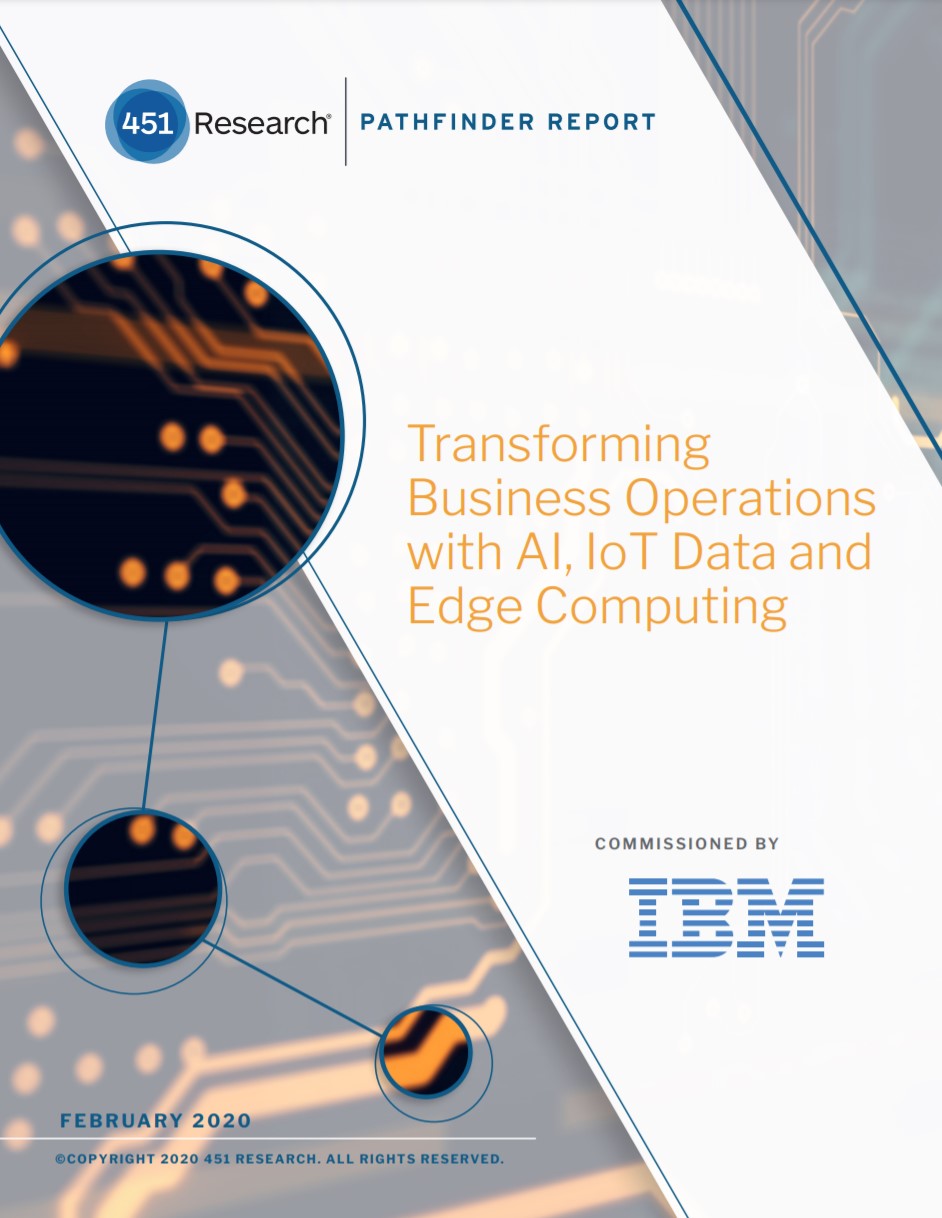
Transforming business operations with AI, IoT data, and edge computing
A Pathfinder report on the ROI of AI, IoT, and edge computing
“So they give the team's stuff that the teams need to go racing,” Crow explains. “And instead of having to pay cash to do that, they give the teams their people and their knowledge and their expertise and their time and their services to do what is called ‘value in kind’ deals.”
“These are a big feature of sport, particularly, for example, in the Olympics where 60% of the value of total Olympic sponsorship is value in kind deals by B2B companies, who provide the Olympics with a whole range of products and services that the Olympics could not do without in order to put the show on.”
Similarly, the organisers of F1 also have deals with large tech companies. AWS has been a collaborator for the last few years, providing cloud and data analytics services as well as statistical platforms for use in TV broadcasting. A lot of the information that the drivers and teams have is also fed through to the live stream of the race. So you at home know more about the state of the car than which cigarette brand formerly paid for it.
Bobby Hellard is ITPro's Reviews Editor and has worked on CloudPro and ChannelPro since 2018. In his time at ITPro, Bobby has covered stories for all the major technology companies, such as Apple, Microsoft, Amazon and Facebook, and regularly attends industry-leading events such as AWS Re:Invent and Google Cloud Next.
Bobby mainly covers hardware reviews, but you will also recognize him as the face of many of our video reviews of laptops and smartphones.
-
 ITPro Best of Show NAB 2026 awards now open for entries
ITPro Best of Show NAB 2026 awards now open for entriesThe awards are a fantastic opportunity for companies to stand out at one of the industry's most attended shows
-
 Mistral CEO Arthur Mensch thinks 50% of SaaS solutions could be supplanted by AI
Mistral CEO Arthur Mensch thinks 50% of SaaS solutions could be supplanted by AINews Mensch’s comments come amidst rising concerns about the impact of AI on traditional software
-
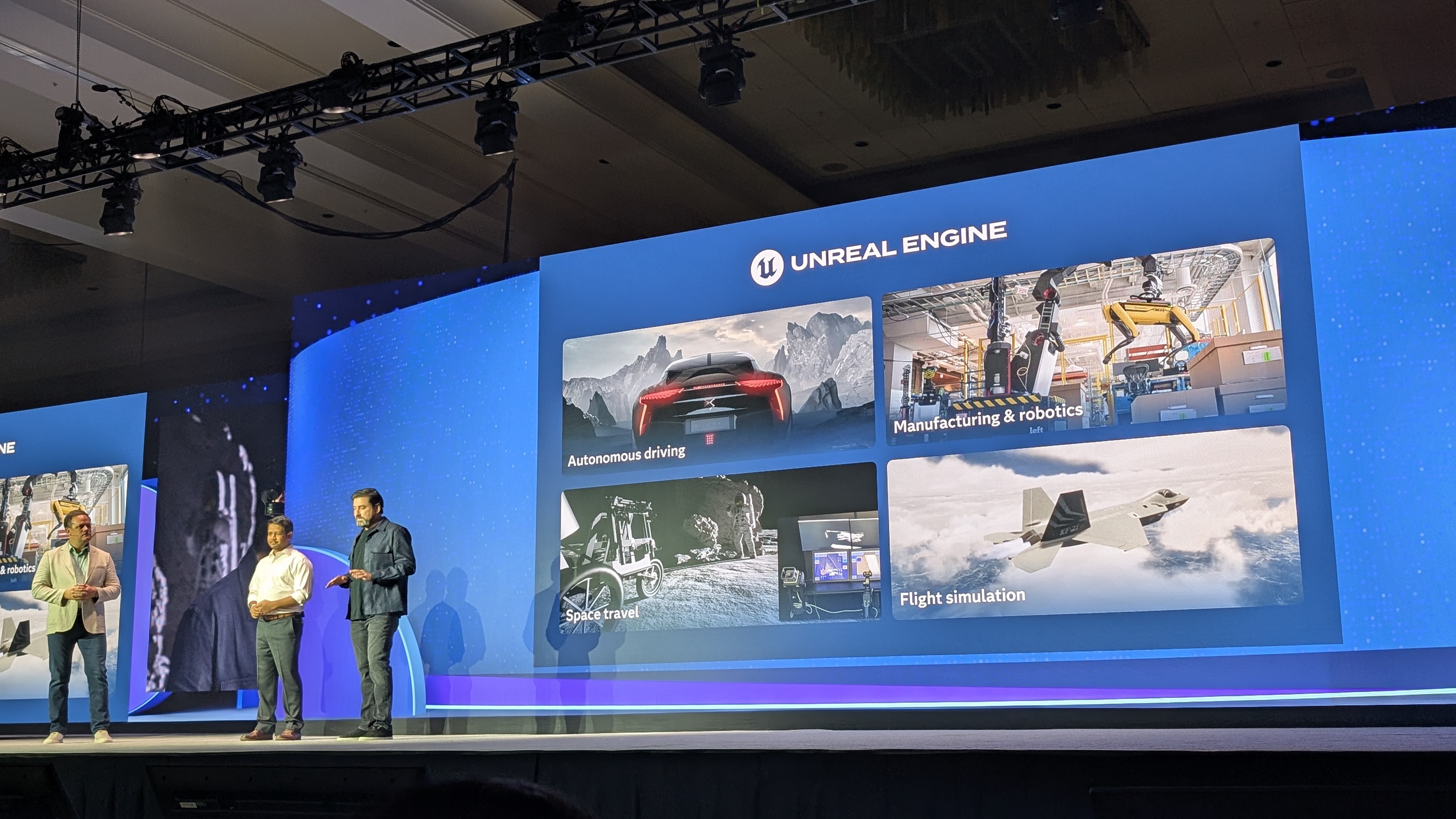 SAS leans on synthetic data and digital twins to support business data demand
SAS leans on synthetic data and digital twins to support business data demandNews SAS has announced new synthetic data capabilities and support for digital twins in a bid to equip enterprises with concrete platforms for data-driven decision making.
-
 Alteryx unveils double leadership appointment in fresh growth drive
Alteryx unveils double leadership appointment in fresh growth driveNews Alteryx has announced the appointments of Jon Pexton as chief financial officer and Steven Birdsall as chief revenue officer.
-
 Three-quarters of data analysts are still reliant on spreadsheets and manual preparation – but AI tools are now transforming the profession, boosting productivity, and supercharging efficiency
Three-quarters of data analysts are still reliant on spreadsheets and manual preparation – but AI tools are now transforming the profession, boosting productivity, and supercharging efficiencyNews Data analysts are still largely reliant on spreadsheets and manual preparation techniques, but AI and automation are shaking things up.
-
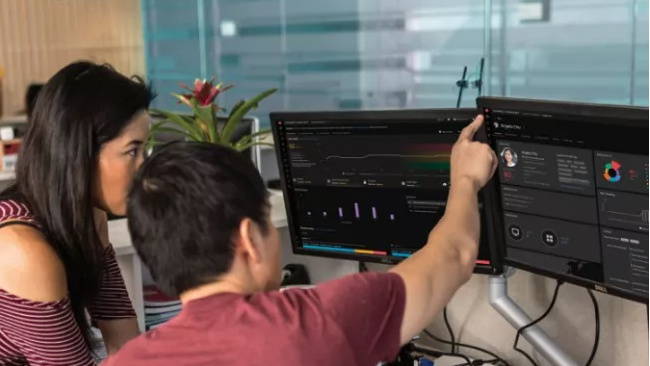 More than a number: Your risk score explained
More than a number: Your risk score explainedWhitepaper Understanding risk score calculations
-
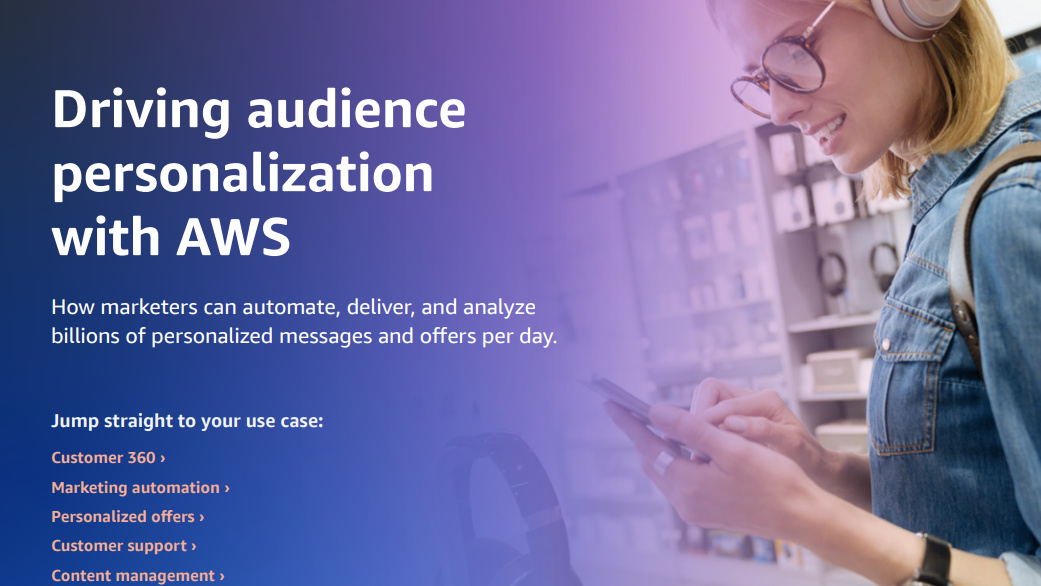 Automate personalization with AWS
Automate personalization with AWSWhitepaper How marketers can automate, deliver, and analyze billions of personalized messages and offers per day
-
 How LaLiga championed big data to transform data analytics in sport
How LaLiga championed big data to transform data analytics in sportCase Study Spain’s premier football division is hoping to transform not just football but sport as a whole with its data analytics efforts
-
 Three ways manual coding is killing your business productivity
Three ways manual coding is killing your business productivityWhitepaper ...and how you can fix it
-
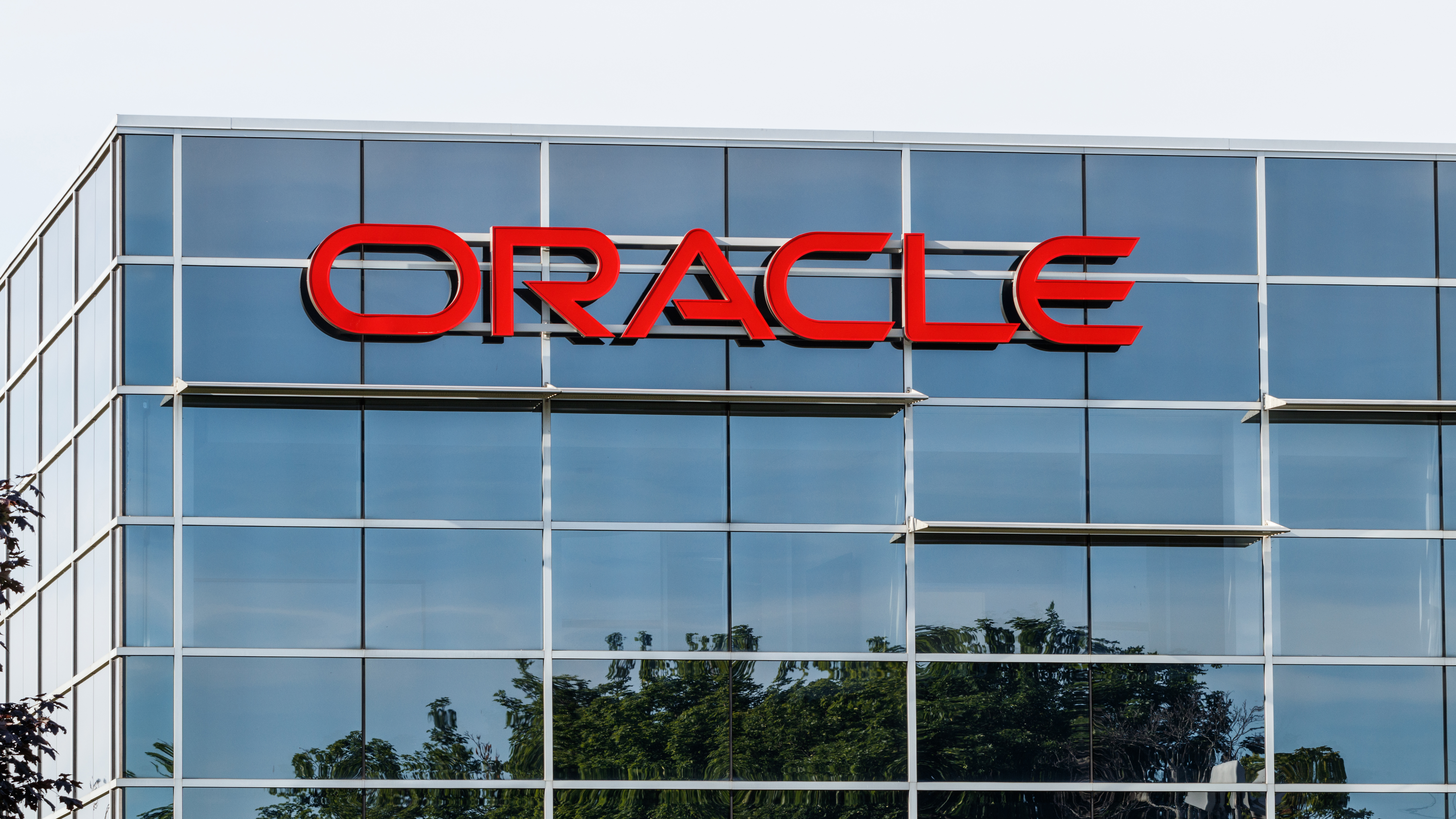 Oracle adds new capabilities to Smart Construction Platform
Oracle adds new capabilities to Smart Construction PlatformNews New analytics enable continuous improvement across project planning, construction, and asset operation
